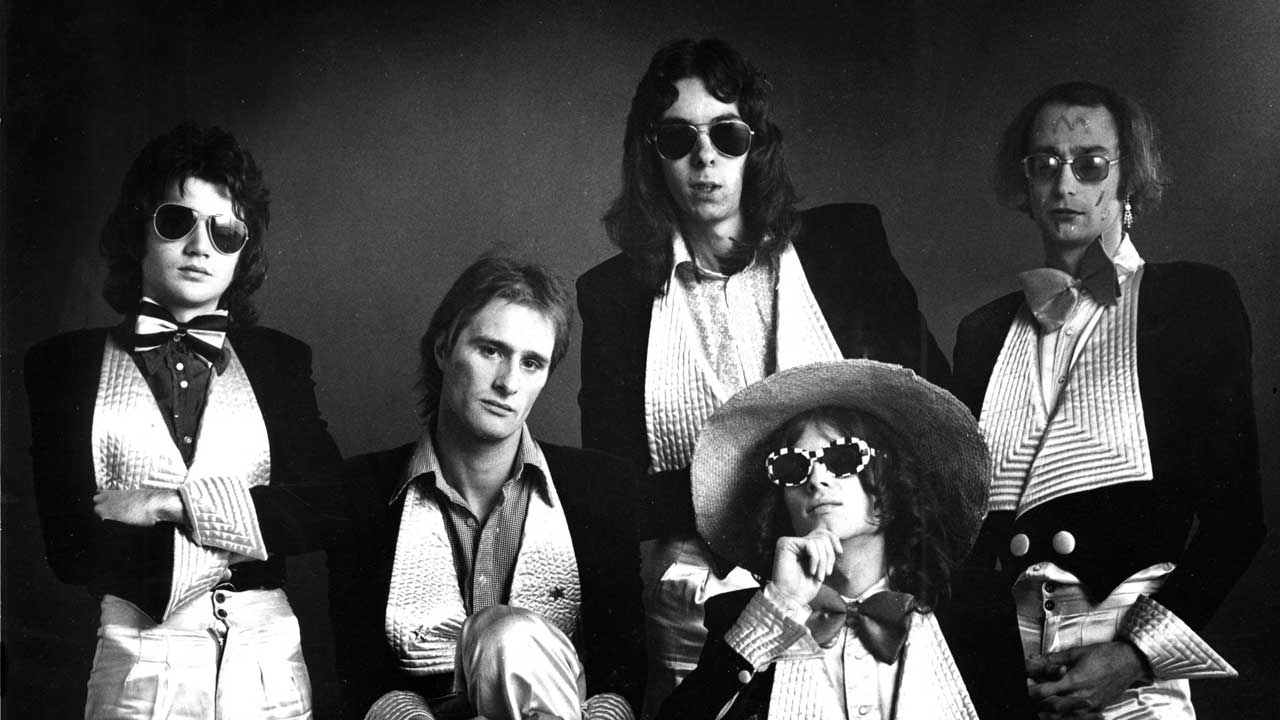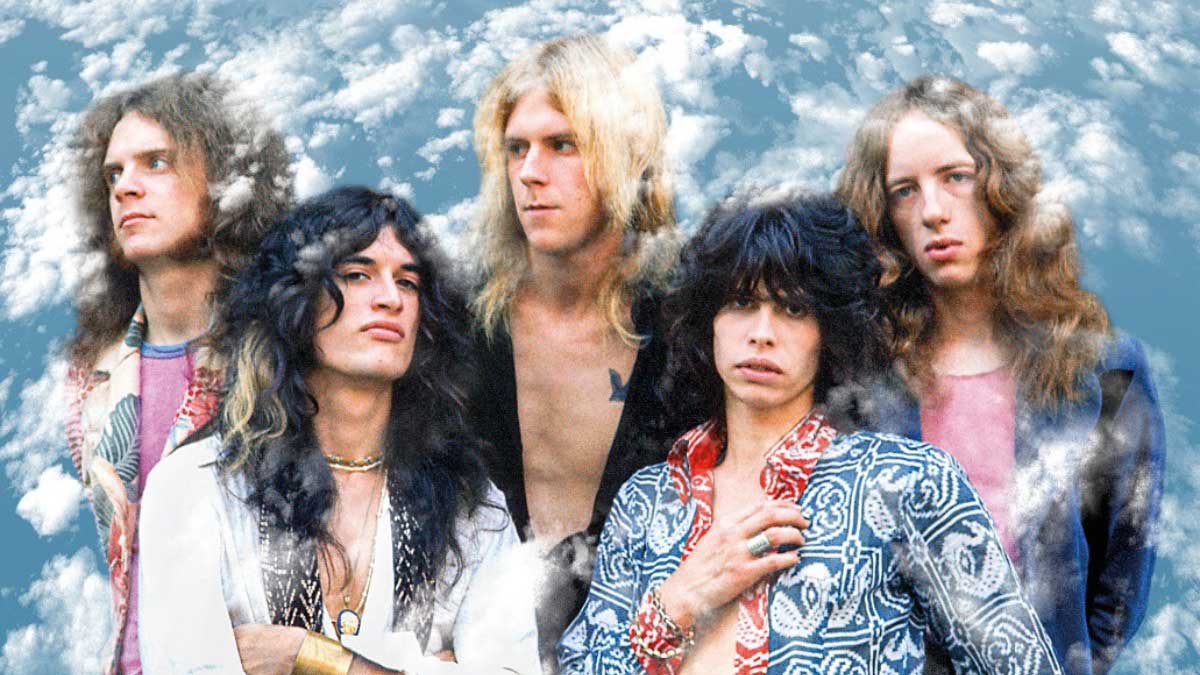Judy Teen: the quasi-calypso pop classic that gave Cockney Rebel an unlikely hit
"She was very funny. And very naughty too. She taught me quite a lot, to be honest. She was very rude" - Steve Harley

The arse end of the 60s was no fun for Steve Harley. An aspiring musician and would-be journalist, the teenager from Deptford was literally scratching a living.
“I was working the night shift at Mattersons meat factory in East London,” he recalls today, “scrubbing the floors with a Brillo pad from midnight till seven in the morning. It was disgusting work, and both my friend and I got close to having a nervous breakdown. That kind of work isn’t good for you. It’s soul-destroying with a big ‘S’.”
One of the few tonics in Harley’s adolescent life was a memorable, if brief, romance with an American girl. “She lived in East London too, but I didn’t see a lot of her because of that job. I was with her one night and said: ‘Hey, this is great.’ She replied: ‘I’m the best screw east of New York and all the way round again.’ She wasn’t, but she was great. And I got a great song out of it too.”
Fast forward to early 1974 and Harley, as the leader of Cockney Rebel, was flush with a three-album deal with EMI. The first of those was The Human Menagerie, an ambitious work that borrowed liberally from Byron, Burroughs, Bowie and Weimar cabaret to create a decadent, head-spinning whole. Two of its most striking songs were Death Trip, a 10-minute descent into orchestral madness, and the eloquently surreal Sebastian. There was just one problem: the record company didn’t quite get it.
“It’s incredible that when you listen to The Human Menagerie now, Sebastian was ahead of its time,” says Harley. “It was No.1 for 10 or 12 weeks in several countries, but over here we couldn’t get it arrested. EMI said: ‘What are we gonna do? This album’s cost a lot of money and we haven’t got a single.’ I looked across at my manager and wondered what was wrong with these guys. What was wrong with What Ruthy Said or Muriel The Actor? Why are they saying this? But I knew what to do because I was so cocky.”
Harley remembered the “good, sexy little teenage love story” that was his fling with the New York girl.
“I’d written Judy Teen about that American chick I was sleeping with. I said: ‘How about this? You want a single? This has got hook upon hook upon hook.’”
Sign up below to get the latest from Classic Rock, plus exclusive special offers, direct to your inbox!
Cockney Rebel were duly packed off to Abbey Road to record it. “I went in there with Alan Parsons, who was really just an engineer then,” explains Harley. “He’d come up through The Beatles and Pink Floyd, and we went into No.2 Studio, where The Beatles recorded.”
The resulting Judy Teen was typically distinctive, an odd, quasi-calypso pop song that could easily double as some dark, Anglo-European nursery rhyme. Harley’s accentuated vocals were a curious mix of Ray Davies and Maurice Chevalier. In Cockney Rebel signature style, there was no lead guitar, choosing instead to peak on the electric violin riffs of Jean-Paul Crocker, with whom Harley had been in the pre-Rebel folk ensemble Odin. Hence, perhaps, the inclusion of a Celtic instrumental break.
The entire thing was driven by Milton ReamesJames’s keyboard riff and Stuart Elliott’s staccato drum beat. Everywhere you listened there were hooks, just as Harley had promised.
“I wrote all the drum pattern myself,” he explains, “and told Stuart what to do. The ‘dum-dum-dum-crash’ sound is actually three of us leaning over the wooden staircase that goes down to the studio and control room, with us mic’d-up and slapping the rail with our open palms. I said to Alan: ‘That’s a really good trick.’ And he went: ‘Yeah, I nicked it from Roy Wood.’ There’s a Move single with that sound on it, which Roy had come up with. And Alan nicked it for us.”
Then, of course, there were the lyrics. Orgasmic couplets spurt freely, with references to “superballs” and her as his “queen of the scene” and “rag doll amore”. Harley recalls the dalliance fondly: “Like it says in the lyrics, she was in from New York. She was very funny. And very naughty too. She taught me quite a lot, to be honest. She was very rude.”
Harley went back to HQ, “handed Judy Teen to EMI and said: ‘Is that your single?’”
Released in March ’74, it rose up the chart and eventually gave Cockney Rebel their first Top Five single. They repeated the trick four months later with Mr Soft, from their second LP, The Psychomodo. By this time, Harley’s fondness for crypto-poetic wordplay, allied to a self-certainty that many mistook for arrogance, had earned him a reputation with the music press. Was he really a headstrong self-publicist?
“I don’t really remember that young man very well,” he offers today. “It’s all a bit cloudy. I’ve had children grow up since and I’ve stopped the drugs. It’s all a long time ago. Self-publicist? How can you be? But I didn’t make stuff up. I’ve never made up a lie in my entire career and I’ve never courted the press.”
Harley nevertheless seemed to fall foul of specific journalists. “I think I had a problem with certain writers. There were some very good prose writers at the NME and Melody Maker in the 70s, but the problem was that they were only amusing when they were cruel. And they thought they had to be amusing. That was a shame, because the cruelty started to wear everybody out.”
Harley remains best known for 1975’s No.1 hit Make Me Smile (Come Up And See Me). But what of Judy Teen? “We still play it,” he says, “but it’s more of an in-your-face electric guitar thing. There was a bit more bubblegum pop around in the old days, but now it’s far more, well, sexy.”
Steve Harley and Cockney Rebel tour the UK in December. Tickets are on sale now.
Freelance writer for Classic Rock since 2008, and sister title Prog since its inception in 2009. Regular contributor to Uncut magazine for over 20 years. Other clients include Word magazine, Record Collector, The Guardian, Sunday Times, The Telegraph and When Saturday Comes. Alongside Marc Riley, co-presenter of long-running A-Z Of David Bowie podcast. Also appears twice a week on Riley’s BBC6 radio show, rifling through old copies of the NME and Melody Maker in the Parallel Universe slot. Designed Aston Villa’s kit during a previous life as a sportswear designer. Geezer Butler told him he loved the all-black away strip.

